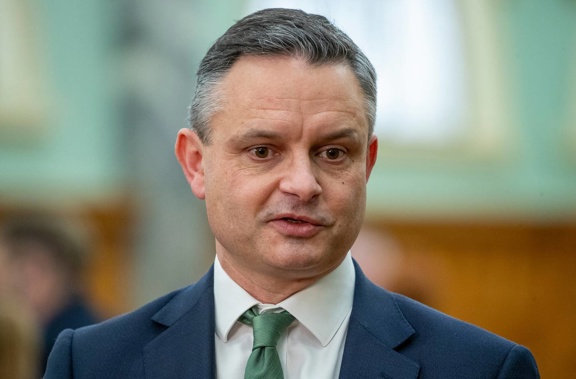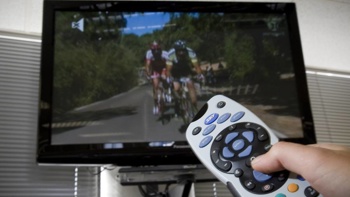
Banning new gas connections, getting people to cut their car use by a fifth, paying people to scrap their dirty cars, capturing gases emitted by landfills, and planting a whole lot of trees are suggestions floated by the Government to drag New Zealand's persistently high greenhouse gas emissions to net zero by 2050.
Four years after taking office, two years after passing the Zero Carbon Act, and four months after receiving the Climate Change Commission's final advice on how the economy can move to net zero emissions the Government has declared its hand, releasing a series of targets and policy suggestions that show how much it wants to cut emissions by, and how it plans to get there.
No sector of the economy is untouched - but not all are touched equally. It is in transport, where Kiwis will see the biggest changes to their lives. But even this might not be enough, with the Government conceding that the plan as it stood, combined with the Government's existing climate change policy, would not be enough to meet its 2025 emissions target.
/cloudfront-ap-southeast-2.images.arcpublishing.com/nzme/X5U477CJBM4QPQKAE5GXUHLIV4.jpg)
Prime Minister Jacinda Ardern said the climate change plan will help New Zealand build back better. Photo / Mark Mitchell.
On Wednesday, the Government released its emissions reduction plan discussion document, the latest step in the long march to reduce New Zealand's emissions. It is part of a new legal framework for reducing emissions ushered in by the Zero Carbon Act.
That law created the Climate Change Commission, which recommends regular emissions budgets to get our greenhouse gas emissions down to levels consistent with our net zero goal (and down to a slightly different goal for methane). It follows these budgets with some policies the Government could look at adopting to reduce emissions in line with those budgets.
The emissions reduction plan is the Government's official response to this advice, where it sets out what it thinks it can achieve. The proposals- all 131 pages of them - are still just ideas for consultation, with decisions on whether to implement them scheduled to be made next year.
Prime Minister Jacinda Ardern said the proposals would help build a better economy.
"Over the last four years we have laid the foundations for a prosperous, low-emissions economy with the passing of the Zero Carbon Act and the work of the Climate Commission.
"Wednesday's discussion document gives New Zealanders the chance to say what policies they want in order to reach our climate targets."
Many of the ideas floated may sound familiar, because the commission itself recommended them. For example, a controversial idea to ban new gas connections in buildings from 2025 has survived from the commission's initial advice.
The most significant changes are in transport. The Government has run with the commission's proposal to get people to drive less, saying it will set a target to get people to travel by car 20 per cent less by 2035.
Another proposal is to increase the number of zero emissions vehicles in the fleet by 30 per cent by 2035, and reduce emissions from freight transport by 25 cent by 2035, and to reduce the emissions intensity of all transport fuels by 15 per cent by 2035.
To help people make the transition to an EV, the Government is proposing a scrappage scheme for people on low incomes. This would give some form of funding to low-income earners when they scrapped their emissions-intensive car, money they could use to buy an EV and install a home charger.
The commission said transport emissions need to fall to 41 per cent of 2019 levels by 2019, the Government said the "scale of change to achieve these reductions and complete decarbonisation cannot be overstated".
But there was some good news - New Zealand is on track for transport emissions to hit their first target in 2025. It is the two later targets that New Zealand risks missing unless changes are not made.
Other ideas include rolling out Government incentives to make new biofuels and hydrogen fuels, reducing organic waste to landfill, and installing technology at landfills to capture the emissions created when rubbish decomposes.
Climate Change Minister James Shaw said the plan was the result of a whole of Government effort.
The document includes one decision the Government will not be consulting on - where to set its final emissions budget. The Government has decided to rely a bit more on using tree planting to offset emissions. Cabinet has made in principle decisions to give itself some wriggle room in the first budget, which will go from 2022-25.
The Climate Change Commission had suggested the Government adopt an emissions budget of 290 Megatonnes of CO2 equivalent - the Government has opted for a slightly higher budget of 292 Megatonnes of CO2 equivalent.
The 2026-30 budget had been made more ambitious, going from the Commission's recommended 312 Mt CO2e to 307 Mt CO2e and the 2031-35 budget has gone from 253 Mt CO2e to 242 Mt CO2e.
In plain English, that means more emissions in the near term, but lower net emissions in the long term, once trees begin to suck up carbon.
The draft emissions plan is still a way from hitting those budgets. The Government estimates the policies will shave between 2.6 and 5.6 Mt CO2e from our emissions by 2025, when in reality New Zealand needs to cut emissions by 7.75 Mt CO2e by 2025 to hit the target.
The Government has indicated it will continue to tweak the emissions trading scheme (ETS) to make it more effective, but the Government is still weighing up the long-term impacts of this, fearful that allowing the price of emissions to rise too high under the scheme will just encourage rampant tree planting, rather than emissions reduction.
The final plan will be released next year. Shaw said it will "need to set out future policy and regulatory change, as well as actions that can be taken by businesses, towns and cities, and every community".
"It will also set out how we make the transition in an inclusive and equitable way."
Take your Radio, Podcasts and Music with you









